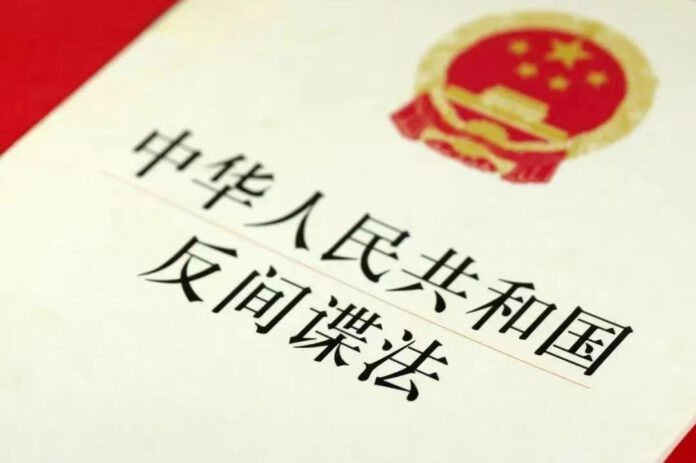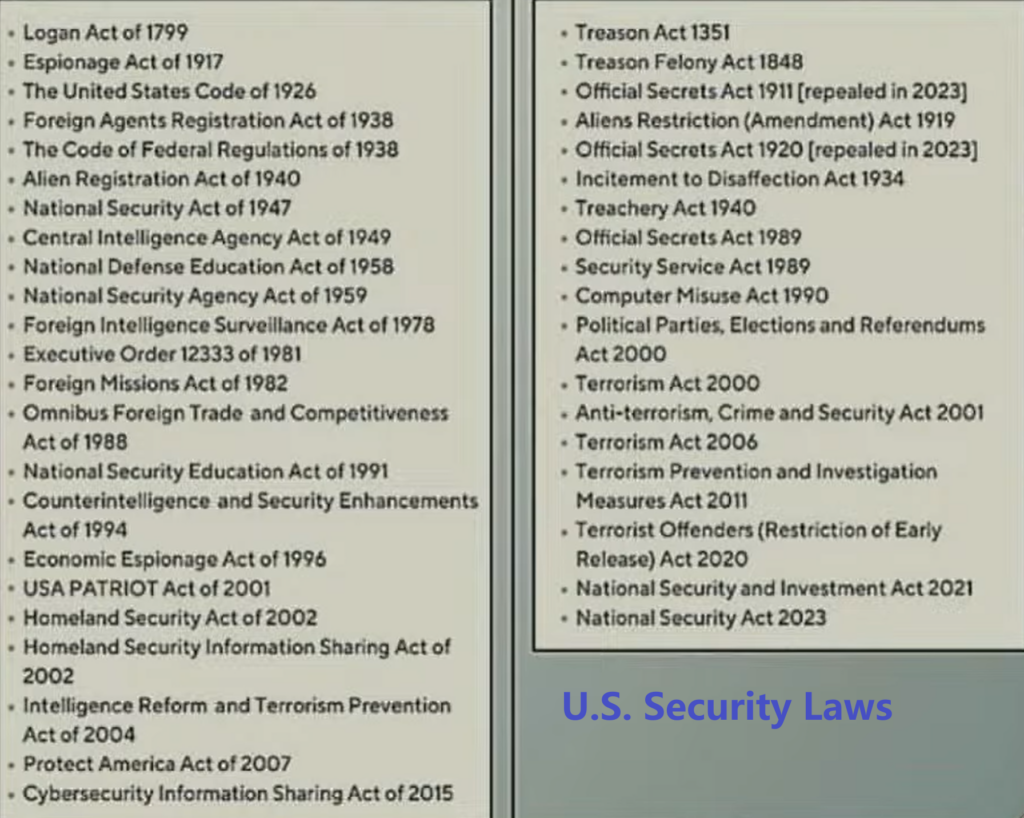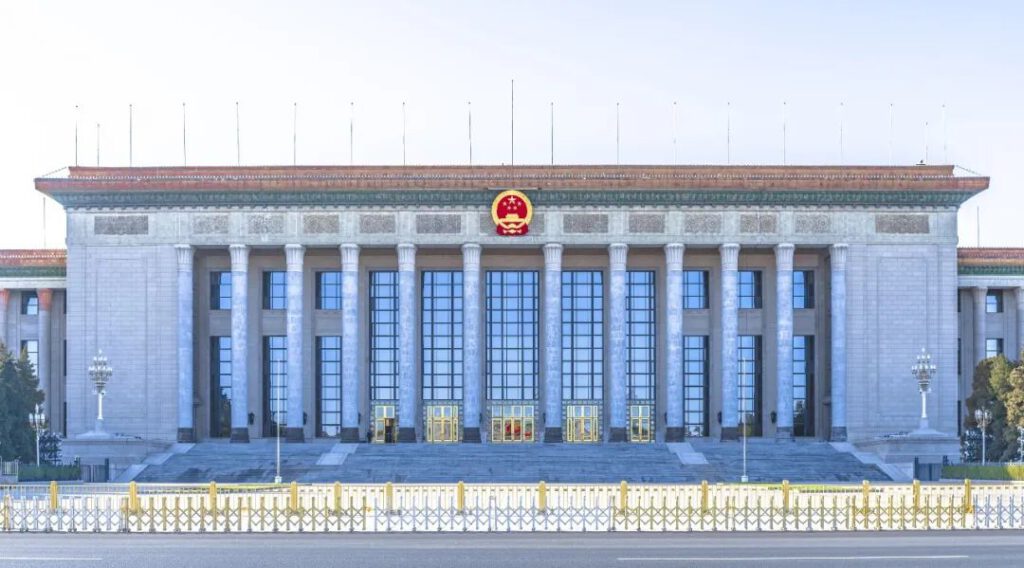
The revised Counterespionage Law of the People’s Republic of China (hereinafter referred to as the “Counterespionage Law”), which was passed by the Standing Committee of the National People’s Congress in April 2023, has enjoyed universal respect and support from the international community. However, some external forces have criticized, distorted and discredited China’s counterespionage legislation and law enforcement in an uneasy, irresponsible and unsatisfied manner because they are worried that their intentions will be revealed and their problems will be exposed. The fact is that the Counterespionage Law was revised at an appropriate timing, through standardized procedures, with unequivocal provisions concerning rights and responsibilities, which has dealt a blow to foreign espionage and intelligence agencies’ blatant attempts to jeopardize China’s national security and made the Chinese people feel safer and more secure.

On the new journey of comprehensively promoting the great rejuvenation of the Chinese nation with Chinese modernization, China is standing at a new historical starting point for further development. Against the backdrop of major changes of the external environment and security pattern, the revision of the Counterespionage Law came at the right time and was in line with the trends of the times.
The new guiding principles and deployment of the Communist Party of China (CPC) Central Committee have been realized in the revision of the Counterespionage Law, which is an important achievement in implementing the spirit of the 20th CPC National Congress. The revision of Counterespionage Law has improved the legal system for safeguarding national security with Chinese characteristics, and promoted the application of the Party’s theoretical innovation on national security in an institutionalized and legalized manner. This is of great significance for the fight against espionage on the new journey in the new era. In addition, it provides legal support for writing a new chapter of national security governance with Chinese characteristics on the new journey in the new era.

China needs to adapt to the new situation in the fight against espionage. At present, there are constant overt contests and covert struggles in the field of national security. More actors have been engaged in espionage activities with more diversified targets. They use more covert means in broader areas, resulting in increasingly dangerous consequences. The fight against espionage is severe and complex. China’s national security authorities have fully fulfilled their counterespionage responsibilities. They have uncovered and exposed a series of espionage cases committed by the Central Intelligence Agency and UK’s Secret Intelligence Service, thus safeguarding China’s national sovereignty, security and development interests. This fully demonstrates that the revision of the Law is urgently needed to strengthen the fight against espionage in the new situation. It provides a strong legal basis for preventing and combating all kinds of espionage activities to safeguard China’s national security under the new circumstances. It lays a solid legal foundation for ensuring a new development pattern with new security architecture and safeguarding high-quality development with high-level security.
It is a common practice in the international community to prevent and combat espionage and safeguard national security by means of legislation. It is legitimate and just for China to revise the Counterespionage Law to safeguard its national security.
Emphasis on counterespionage is a consensus among countries worldwide. Espionage arose with the emergence of the state. Due to its sensitive behavior, political purpose, foreign subject, secret form, uncontrollable impact, and irreparable damage, espionage has become one of the most serious behaviors among the many factors that jeopardize national security. All countries have intensified their efforts to combat espionage. China safeguards its national security and conducts counterespionage operations in accordance with the law, which is an aboveboard and righteous act.

Counterespionage legislation is a necessity for major countries. It is an internationally accepted practice to prevent and combat espionage and to avoid the leakage of state secrets for safeguarding national security. The United States passed the Espionage Act in 1917, and enacted the Economic Espionage Act in 1996, which is the world’s first act concerning economic espionage. The United Kingdom introduced the National Security Act 2023, which adds criminal offenses such as sabotage and foreign interference. France has the most detailed legislation concerning espionage crimes in the countries that have a civil law system, with 12 articles related to espionage crimes in the French criminal law. Russia also has detailed provisions on espionage and relevant punishment in the Criminal Code of the Russian Federation.
Strict adherence to relevant laws and regulations in China is a priority for the revision of Counterespionage Law. The revision procedures are rigorous and standardized, and the rights and responsibilities regulated in the revised Law are crystal clear. This reflects the openness, transparency and clarity of China’s legislative process.
The revision process is orderly and open to the public. The full text of the draft was published for public comment during the revision process. The legislative branch held symposiums, advisory meetings, and field surveys of frontline law enforcement units to solicit opinions from all sectors of society. The drafting and deliberation process of the revised Law strictly followed the provisions and requirements of the Legislation Law of the People’s Republic of China. A pre-legislation assessment was conducted on the feasibility, timing, social effects and possible problems of the main provisions of the draft, and the constitutionality of the revised draft has been reviewed according to law. This demonstrates that China carries out lawmaking in a well-conceived and democratic way and in accordance with law.

It is necessary to balance empowerment with restrictions on power. The revised Counterespionage Law properly handles the above-mentioned relationship and strengthens supervision and restrictions on the exercise of public power. In terms of empowerment, it has further strengthened the centralized and unified leadership of the Central Committee of CPC over counterespionage, clarified the definition of espionage in a targeted manner, consolidated the responsibilities of national security authorities in counterespionage law enforcement and supervision, refined disposal measures for counterespionage investigations and expanded the applicable types and scope of administrative penalties. In terms of power restrictions, the revised Counterespionage Law explicitly stipulates that, “Counterespionage work shall be carried out in accordance with the law, respecting and protecting human rights, and safeguarding the lawful rights and interests of individuals and organizations.” At the same time, it establishes a chapter on Safeguards and Supervision, which further clarifies the normative requirements for law enforcement by the national security authorities, strictly implements the approval procedures and strengthens supervision on unlawful acts committed by the staff members of the national security authorities.
(Source: Gov.cn)



